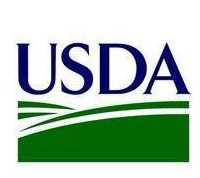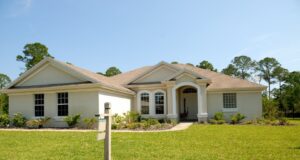White House Conference Spotlights Importance of Building for Resilience, Says ULI
Washington, D.C. – May 11, 2016 – (RealEstateRama) — White House Conference on Resilient Building Codes will help greatly to raise awareness of the critical need for building codes to encourage urban development that is more resilient to the impacts of climate change, according to the Urban Land Institute (ULI).
The event, attended by ULI Center for Sustainability Executive Director Sarene Marshall and Katharine Burgess, director of the center’s Urban Resilience program, featured a discussion by Obama Administration officials and public- and private-sector representatives on the key role of building codes in furthering community resilience. Participants also explored the economic benefits of resilient design and actions the federal government and private sector can take to advance resilience in the built environment. “Today’s event spotlights the importance of land use policies and regulations that encourage building for resilience and spark innovative approaches to the planning, design, and development of real estate,” Marshall said.
For the event, ULI joined the American Institute of Architects, the National Institute of Building Sciences, and a diverse coalition representing nearly 1.7 million professionals in the design and construction industry in releasing Preparing to Thrive: The Building Industry Statement on Resilience, which is a declaration to provide leadership by example in building for resilience. In signing the statement, ULI and other organizations committed to significantly improve the resilience of the nation’s buildings, infrastructure, public spaces and communities through the creation of new practices that will help reduce risks and enable faster recovery from adverse events.
ULI’s contribution to the coalition’s effort is the creation of a new Returns on Resilience website, which spotlights leaders in the real estate industry who have incorporated resilient design measures into their development projects and have seen positive financial, operational and marketing returns as a result. Beyond exploring the business case for resilience, the Returns on Resilience website also addresses the role of building codes, and examines how going “beyond the code” can be beneficial to real estate developers, communities and future building occupiers. The website is designed to be continuously updated with new information and development profiles, and ULI will be accepting recommendations for additional case studies to feature.
Launched today, the website is a digital version of ULI’s Returns on Resilience: The Business Case report, which explores the types of investments developers and property owners are making in new infrastructure and technologies, innovative design and construction methods, and other resiliency strategies to both protect their properties and create value for their developments. Among the general themes from projects profiled in the report is the recognition that to support resiliency, building codes should reflect changing environmental conditions and future risks, rather than those of the past. Developers’ experiences, and those of others, can inform how to improve the resilience of vulnerable sites, and what types of standards will reduce risks of development in the face of climate change.
This combination of learning from experience and forward-looking codes can result in “building better, rather than simply building back,” Marshall said. “With a changing climate and changing economic norms challenging us daily, we need to rethink how we are building neighborhoods and connecting communities. This reality is compelling the real estate industry to partner ever more closely with the public sector and other stakeholders to develop in a way that protects both the built and natural environment and creates more vibrant places.”
ULI’s Returns on Resilience website and publication are part of the Institute’s overall efforts to help communities prepare for increased climate risk in ways that foster a quicker, safer return to normalcy after an event and an ability to thrive going forward. The website also includes a wealth of other information and research, as well as reports on resilience advice provided by ULI to several communities across the United States, including Norfolk, Virginia; Portland Maine, Duluth, Minnesota; and Seattle. ULI’s work in this area is provided through the Institute’s highly regarded advisory services program, which involves ULI members volunteering their expertise to advise communities on how best to address pressing urban growth challenges in the context of a changing climate. In each case, ULI panelists offer recommendations focused on linking land use decisions to future economic, environmental, and social resilience.
“Improving resilience is about much more than just reducing disaster-related risk. Community resilience needs to address not just environmental factors, but quality of life and economic prosperity,” Marshall said. “Sustainability, livability, health and prosperity are all necessary components of resilience, and land use patterns link these together. This holistic view is helping communities think beyond catastrophes and evolve into thriving places with more potential and promise than ever before.”
About the Urban Land Institute
The Urban Land Institute is a nonprofit education and research institute supported by its members. Its mission is to provide leadership in the responsible use of land and in creating and sustaining thriving communities worldwide. Established in 1936, the institute has more than 38,000 members worldwide representing all aspects of land use and development disciplines. For more information, please visit uli.org or follow us on Twitter, Facebook, LinkedIn, and Instagram.
About the ULI’s Center for Sustainability
The ULI Center for Sustainability is dedicated to creating healthy, resilient, and high-performance communities around the world. Through the work of ULI’s Urban Resilience program and the Greenprint Center for Building Performance, the Center advances knowledge and catalyzes adoption of transformative market practices and policies that lead to improved energy performance and portfolio resilience while reducing risks due to a changing climate.
contact Trish Riggs at 202-624-7086
by Robert Krueger
















